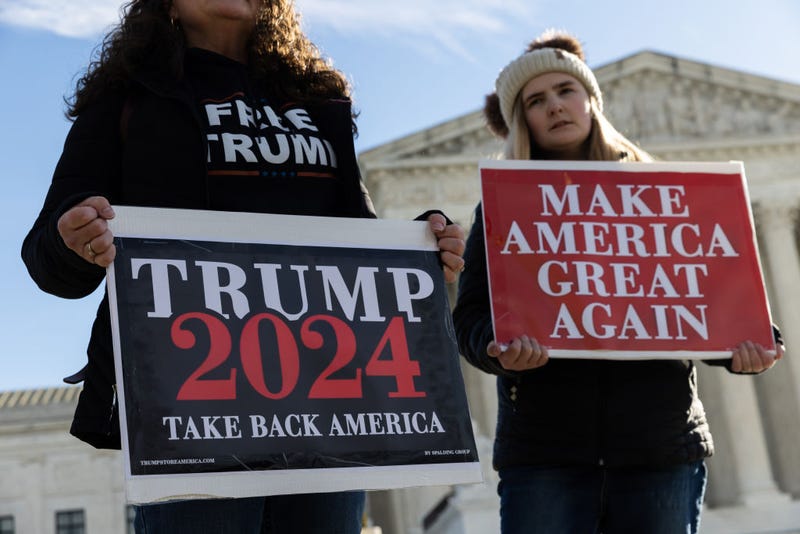
For the first time in history, the Supreme Court will rule on whether a constitutional amendment created after the Civil War applies to the presidency.
The Supreme Court began hearing arguments Thursday on Colorado's controversial decision to disqualify Republican front-runner Donald Trump from the primary ballot.
In December, the Colorado Supreme Court ruled that the former president would not appear on ballots in the state, saying he's ineligible for reclaiming the White House under Section Three of the Fourteenth Amendment. That section bars anyone who swore an oath to the Constitution and then participated in "insurrection or rebellion" against the United States from holding office.
The justices made it clear that they felt Trump had "engaged in insurrection" on Jan. 6.
"President Trump's direct and express efforts, over several months, exhorting his supporters to march to the Capitol to prevent what he falsely characterized as an alleged fraud on the people of this country were indisputably overt and voluntary," the justices wrote in their majority decision.
"Moreover, the evidence amply showed that President Trump undertook all these actions to aid and further a common unlawful purpose that he himself conceived and set in motion: prevent Congress from certifying the 2020 presidential election and stop the peaceful transfer of power."
Trump's legal team appealed the ruling, offering a number of reasons why the amendment doesn't apply. His lawyers contend the amendment excludes the presidency and candidates running for president, the Associated Press reported. They also argue that the Jan. 6 Capitol riot wasn't an insurrection, and that Trump was not a participant.
If the justices uphold the ruling, it would "amount to a declaration" that Trump did engage in insurrection and is barred from holding office again, the AP reported. It would also allow other states to keep him off their primary ballots.
On the other hand, if the justices reverse the ruling in Trump's favor, it could put a stop to efforts in other states to eliminate him from ballots.
